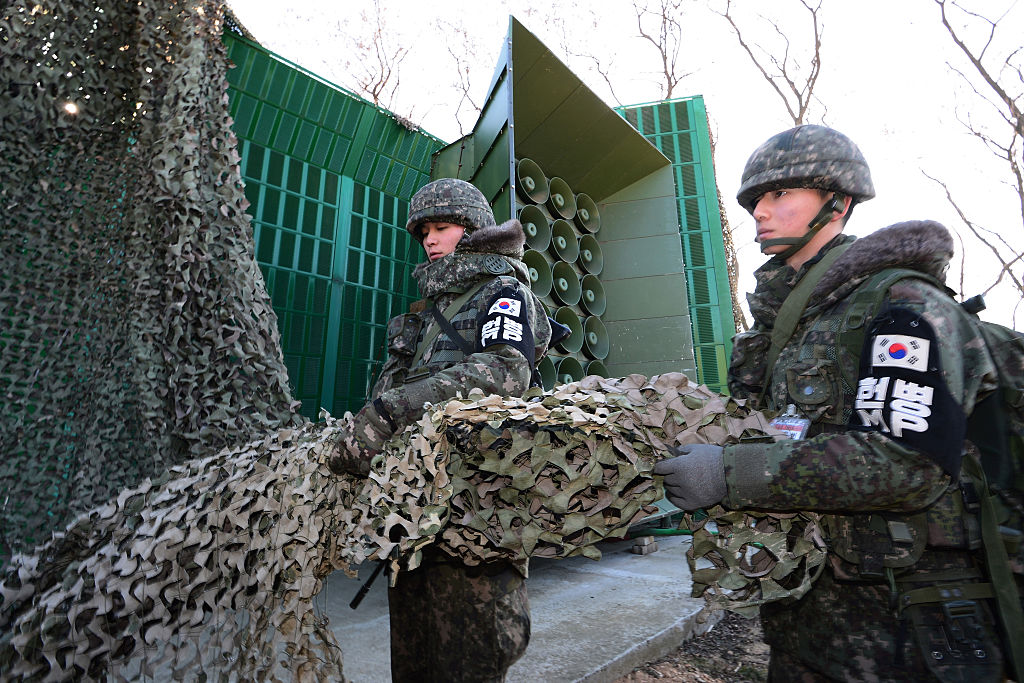Ahead of Friday’s scheduled summit between South Korean President Moon Jae-in and North Korean leader Kim Jong Un, both sides are publicizing their respective gestures of goodwill. From the North Koreans, that means freezing the country’s nuclear weapon program, a pledge you’d be justified in taking with some salt. On the South Korean side, it means shutting down the K-pop, at least temporarily: On Monday, the New York Times reports, South Korean authorities turned off the high-powered loudspeakers that regularly blast news, propaganda, and Korean pop music over the heavily fortified demilitarized zone between the two states.
The speakers have been turned on and off over the years, but were most recently reactivated in September 2016 in response to North Korean bomb tests. (North Korea has loudspeakers along the DMZ too, albeit less powerful ones.) K-pop isn’t the impetus for Korea’s recent diplomatic thaw, of course, but as explained in an informative overview at The Outline today, it has become an important component of the South’s long-running governmental propaganda campaign to the North. The bright, bubbly music projects an image of consumerist fun and modern, internationally relevant South Korean culture—but it’s also largely apolitical and inoffensive, assuming you aren’t offended by ultra-catchy choruses.
Among the North Korean regime, the genre appears to be finding increasing acceptance: After attending a special outreach concert by multiple K-pop groups in Pyongyang last month, Kim was photographed with performers and state media reported he’d enjoyed it. Of course, until this week, soldiers stationed along the demilitarized zone didn’t really have a choice but to listen.




